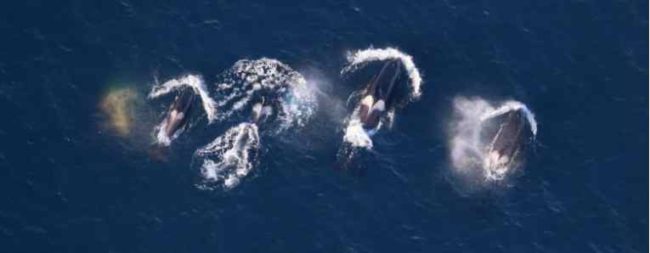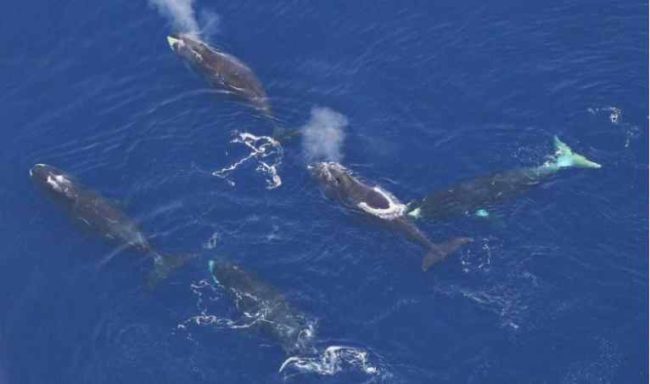A new study provides essential information to conserve an endangered species and supports subsistence communities own observations.

For the first time, scientists have direct evidence that killer whales are preying on bowhead whales in the U.S. Pacific Arctic. A dramatic loss of sea ice in recent years may be leaving bowheads more vulnerable to killer whale predation.
“Until now, bowhead whales in the U.S. Pacific Arctic were thought to experience minimal predation pressure from killer whales. Our study suggests that is no longer the case,” said Amy Willoughby, the NOAA Fisheries Affiliate/University of Washington scientist who led the research. “We now know that during 2009–2018, killer whale predation was the primary cause of death observed for bowhead whales in the region.”
The new study is the first to examine non-harvest mortality of bowhead whales in the U.S. Pacific Arctic (northeastern Chukchi Sea and western Beaufort Sea). This collaborative research provides multi-year evidence of killer whale predation on bowhead whales in this region.
Bowhead Whales Are A Vital Arctic Resource
Bowhead whales are vital nutritional, spiritual, and cultural resources for 11 Alaska Native whaling communities that hunt them for subsistence. These communities are located where bowhead whales come closest to the Alaskan shore on their spring and autumn migrations. Understanding how environmental changes influence bowhead whale mortality and behavior is vital for these communities to prepare for the future as the Arctic continues to warm.
Before it was stopped in the early 1900s, commercial whaling brought bowhead whales to near extinction. Though still endangered, the western Arctic bowhead population has recovered considerably. It supports a subsistence harvest under co-management by NOAA Fisheries and Alaska Native organizations.
Understanding mortality is essential to effectively manage and conserve endangered bowhead whales. Scientists need to know the number and cause of deaths, and what threats may lead to future mortality.

